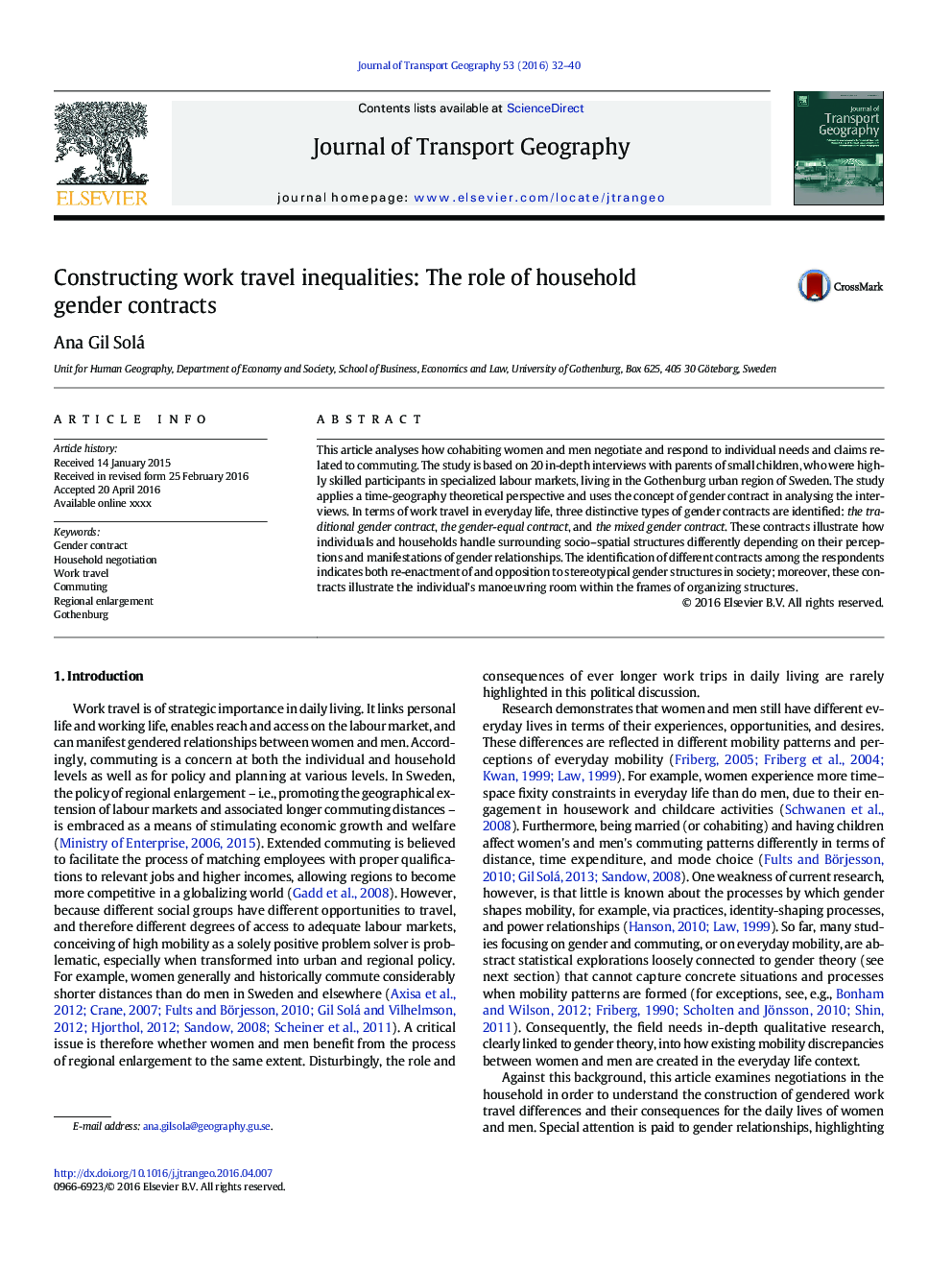| Article ID | Journal | Published Year | Pages | File Type |
|---|---|---|---|---|
| 7485402 | Journal of Transport Geography | 2016 | 9 Pages |
Abstract
This article analyses how cohabiting women and men negotiate and respond to individual needs and claims related to commuting. The study is based on 20 in-depth interviews with parents of small children, who were highly skilled participants in specialized labour markets, living in the Gothenburg urban region of Sweden. The study applies a time-geography theoretical perspective and uses the concept of gender contract in analysing the interviews. In terms of work travel in everyday life, three distinctive types of gender contracts are identified: the traditional gender contract, the gender-equal contract, and the mixed gender contract. These contracts illustrate how individuals and households handle surrounding socio-spatial structures differently depending on their perceptions and manifestations of gender relationships. The identification of different contracts among the respondents indicates both re-enactment of and opposition to stereotypical gender structures in society; moreover, these contracts illustrate the individual's manoeuvring room within the frames of organizing structures.
Keywords
Related Topics
Life Sciences
Environmental Science
Environmental Science (General)
Authors
Ana Gil Solá,
